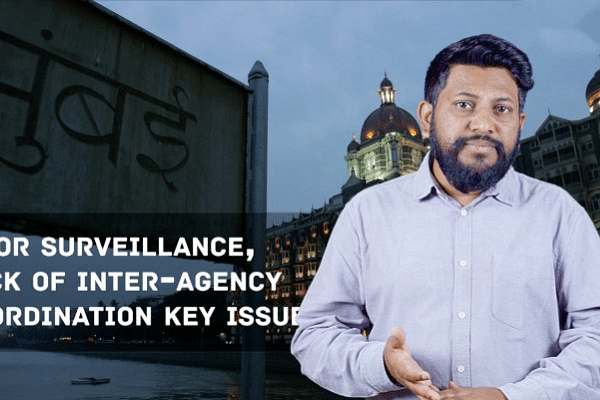
[Watch] After 26/11, How Prepared Is India To Prevent An Attack Over The Sea?
Transcript:
The Indian Navy, along with the Coast Guard, conducted the largest ever coastal defence exercise, called "Sea Vigil", for two days starting 22nd January, covering the over 7,000 km long coast of India.
It was the first time that such an exercise was to cover the entire coast of India, including the country’s island territories in the Indian Ocean and the Arabian Sea.
You see, maritime security in India doesn't often get the kind of attention that, say, disputed borders receive. Which is surprising. Think of the prominent attacks that have happened on Indian soil over the last decade or two, and you think – 26/11. That attack on Mumbai had involved the entry of terrorists through the sea, and on a boat.
Going back further, if you think of the 1993 bombing in Mumbai, perpetrators had brought explosives, again, by sea.
And that's why this exercise, the Sea Vigil, was important.
It involved two phases – assessing the robustness of each of the naval security agencies, and carrying out simulated attacks on vital installations and assets by infiltrating through the sea.
Other things like ability to thwart infiltration attempts and response to the hijacking of a ship were also put to test.
It's clear – the Navy wants to identify gaps in the multi-tier security layers at sea and fix them so as to ensure better security of our seas.
After 26/11, two aspects emerged broadly as areas of concern – poor surveillance and lack of inter-agency coordination. And India has sought to address both.
To plug the gaps in surveillance, New Delhi decided to focus on building a network of radars along the coast and on the island territories... why? To detect and tackle threats emanating from the sea in real time.
As part of this effort, a Coastal Surveillance Network was set up. Under Phase I of the project, we got 36 radar stations built and operationalised on the mainland, six in Lakshadweep and Minicoy Islands, and four in Andaman and Nicobar Islands.
Under the next phase, India is setting up 38 more radar stations and four mobile surveillance stations.
To monitor movements on the high seas, India has set up radar stations in the Indian Ocean nations of Seychelles and Mauritius, and Sri Lanka. New Delhi is in talks with Maldives, Myanmar, Bangladesh, Indonesia, and Thailand as well, to set up more of these stations.
These radar stations feed information into a naval centre based out of Gurugram to generate a comprehensive picture of maritime activity, which is then disseminated to various agencies.
Once the second phase of the project is wrapped up, we will have almost no section of the coast escaping radar detection.
But – and it's a little concerning - that even as we talk of fixing surveillance gaps, we've had instances that have raised an alarm. Think of how a Russian couple drifted to the Mumbai coast – undetected – with ease, and we didn't even know. The Russian couple's yacht was able to avoid Navy and Coast Guard surveillance, and that is worrying.
Next, inter-agency coordination. It has received substantial focus over the years. India has put in place a three-layer coastal security system, with the Indian Navy, Coast Guard, and State Maritime Police forces as its components.
States, though, have proven to be the weak link in the chain as local governments aren't really clued into national security.
For example, in the case of Odisha, the Comptroller and Auditor General of India noted that there was an acute shortage of manpower and infrastructure, and the training for the marine police was inadequate.
So, how do we read the situation?
It would be fair to say that India has certainly come a long way, at least from those days that now seem aeons ago, when there was very little to talk about protection along the coast.
However, we've got to keep at it and keep looking to plug the gaps and do everything we can to keep out another 26/11 from ever happening again.
And... to the media, let's please talk more about maritime security. It matters. A lot.